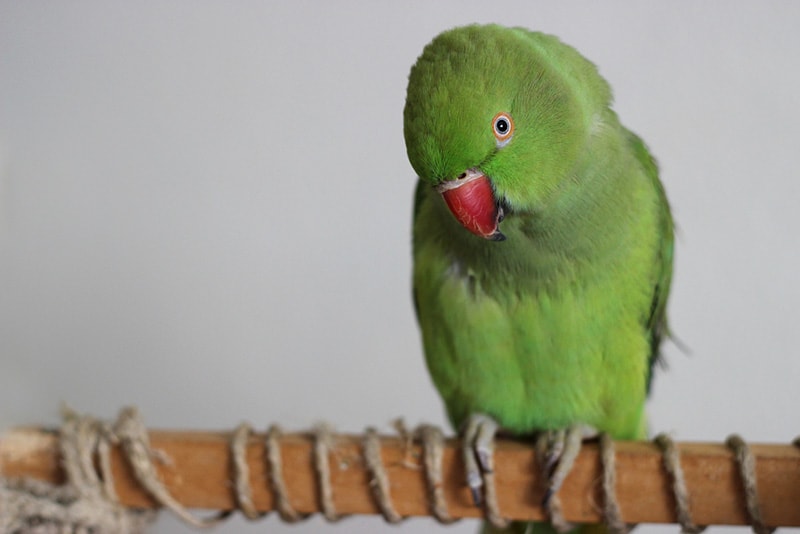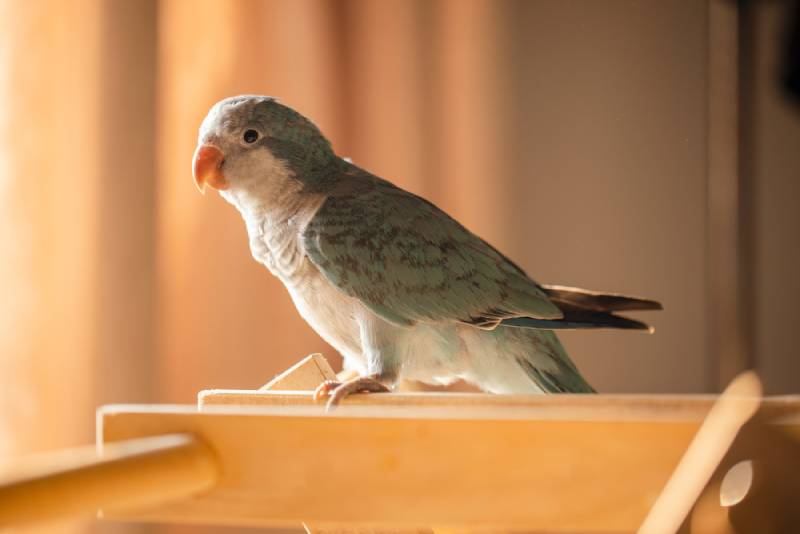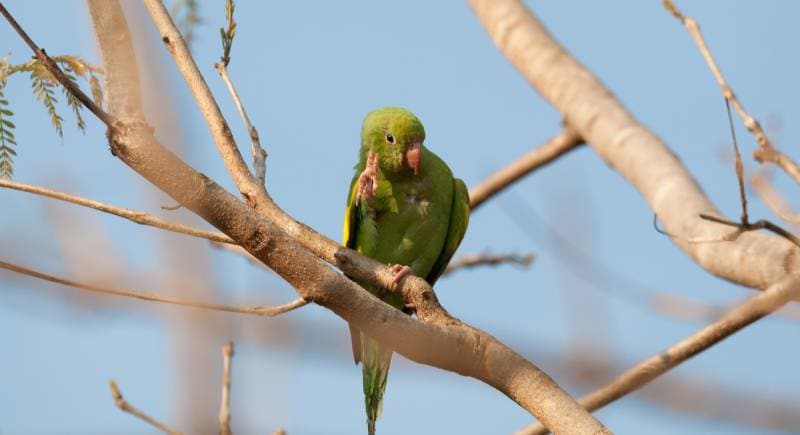Can Parakeets Eat Raspberries? Vet-Approved Nutrition Facts & FAQ
Updated on
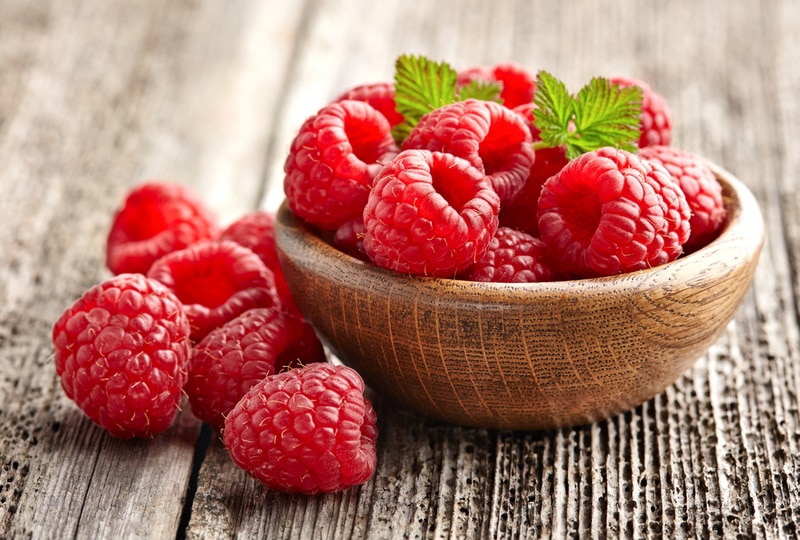
Click to Skip Ahead
Parakeets, also called budgies or budgerigars, are adorable little birds. An important part of being a parakeet owner is learning what to feed these little birdies, and what to stay away from. After all, it’s up to you to provide your feathered friend with all the essential nutrients to keep them healthy.
There are around 400 different species of parrots, of which about 115 are known as parakeets. However, it is the budgerigar (Melopsittacus undulatus), that is most commonly referred to as the parakeet, and is also the most popular avian pet in the world.
Budgies can eat a variety of fruits and veggies in addition to high-quality pellets and seeds, so what about raspberries? Can they eat them? Yes, budgies can eat raspberries in moderation. All parrots and parakeets can safely enjoy a raspberry now and then, but it is important to be familiar with the specific dietary requirement of your parrot species, to know where fresh fruit fits in.
If you’re a new budgie owner or simply want to know more about them, read on to learn about their typical diets and other pertinent information.
How Often Can I Feed My Budgie Raspberries?
You can let your budgie enjoy one or two ripe, fresh raspberries once a week, mixed with their regular diet and other safe veggies and fruits.
Even though raspberries offer vitamins and minerals for your budgie, they are high in sugar and should only be provided in moderation along with other safe fruits. However, raspberries have one of the lowest sugar levels of all fruit, so they are a great option for our pets, but be aware that too much fruit can cause digestive issues for your budgie, so it’s important to keep a balance between their normal diet and any extras.

How Do I Feed Raspberries to My Budgie?
Before feeding, wash the raspberries first to remove any bacteria or chemicals before feeding them to your budgie. Cut the raspberries into halves or quarters to make it easier for your pet to manipulate them into their small beaks. Buying organic raspberries is an excellent option to reduce the risk of contamination by possible pesticides.
What Fruits and Veggies Can Budgies Not Eat?
Most fruits and veggies suitable for human consumption are also ideal for most bird species in small amounts. However, there are a few exceptions to be aware of. Fruit seeds and pits should never be fed to your budgie, so stay away from:
- Apple and pear seeds
- Pits of cherries, nectarines, plums, apricots, and peaches
The seeds and pits of these fruits contain a toxic cyanide compound, so they must be avoided for the safety of your bird. You can feed these fruits, but you must remove all seeds and pits beforehand. Don’t panic; the amount of this compound in the seeds of these fruits is too small to be a risk to us, but it can be deadly to a creature as tiny as the parakeet.
Other toxic foods you must entirely avoid feeding your budgie are:
- Alcohol
- Avocados
- Chives
- Chocolate
- Coffee
- Eggplant (no leaves or green parts)
- Onions
- Salt
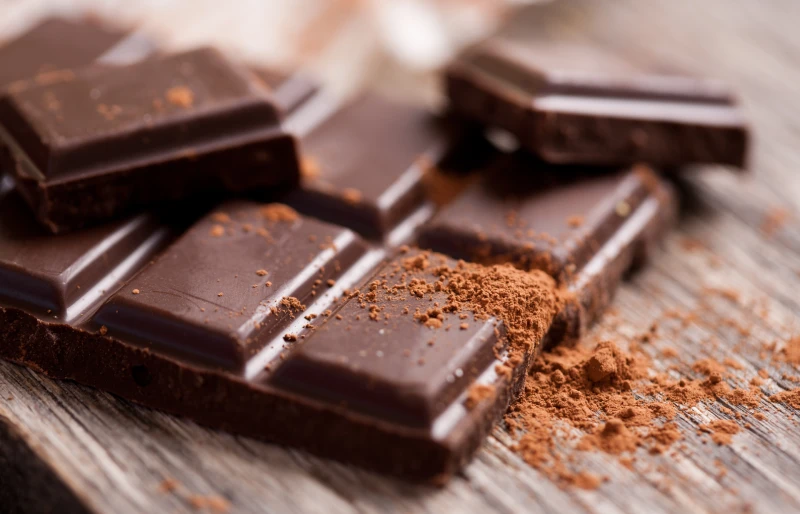
Tips for a Healthy Budgie Diet
Budgies require a balanced diet of pellets, seeds, fresh veggies, and fruits. High-quality pellets should account for 60% to 80% of your budgie’s daily diet, with 5% containing seeds. Fruits and veggies should account for only 20% to 25%. You can feed seeds, but only in moderation due to their high fat and carbohydrate content, low protein content, and lack of essential vitamins and minerals. Millet seeds are usually a budgie’s favorite, but you can experiment with other seeds, like quinoa, oats, barley, and flax seeds.
Soaking sprouting seeds is a healthy option for budgies because they contain essential nutrients. Plus, your budgie will love them!
Here is a list of safe and nutritious fruits and veggies you can feed your budgie:
Safe Fruits
- Apple (no seeds)
- Apricot (no pit)
- Banana
- Blueberry
- Cantaloupe
- Cherry (no pit)
- Coconut
- Fig
- Grapes
- Grapefruit
- Kiwi
- Melon
- Mango
- Nectarine
- Orange
- Papaya
- Peach (no pit)
- Pear (no seeds)
- Pineapple
- Plum
- Pomegranate
- Raspberry
- Strawberry

Safe Veggies
- Asparagus
- Beans (cooked)
- Beet
- Broccoli
- Brussel sprouts
- Cabbage
- Carrot
- Carrot tops
- Chinese vegetables
- Corn
- Cucumber
- Dandelion leaves
- Endive
- Kale
- Parsnip
- Peas
- Peppers
- Potato
- Pumpkin
- Romaine lettuce
- Spinach
- Sprouted seeds
- Squash
- Sweet potato
- Tomato
- Zucchini
Raspberries and Xylitol
Since we’re on the subject of raspberries and whether budgies can eat them, we should note that raspberries contain a naturally occurring sweetener called xylitol. While there’s not as much research regarding birds and xylitol toxicity to our feathered friends, it is highly toxic to dogs and some bird species. Giving too many raspberries to budgies can cause gastrointestinal upset, and it’s best to offer one raspberry occasionally as a snack to be safe.
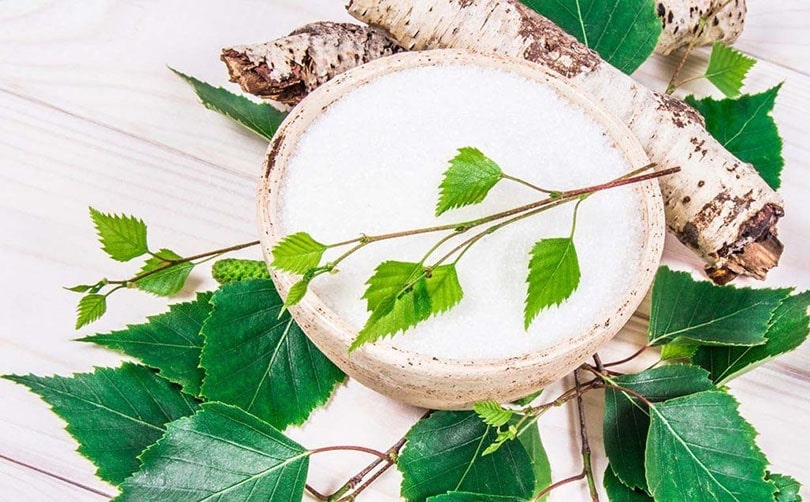
Final Thoughts
While raspberries are deemed safe for your budgie, they should only ever be fed as a small, occasional treat. It’s imperative to provide mostly pellet foods mixed with 20% to 25% fresh veggies and fruits. You can provide roughly 5% seeds, but don’t overdo it due to their lack of nutrition and high fat and carb content.
Remember to thoroughly wash raspberries before feeding to your budgie, and discard uneaten fruit within 2 to 3 hours of putting them in your budgie’s cage because uneaten fruit will spoil.
See Also:
- Can Parakeets Eat Cantaloupe? Vet-Approved Nutrition Facts
- Can Parakeets Eat Bananas? Vet Approved Nutrition Facts & FAQ
Featured Image Credit: Dionisvera, Shutterstock



